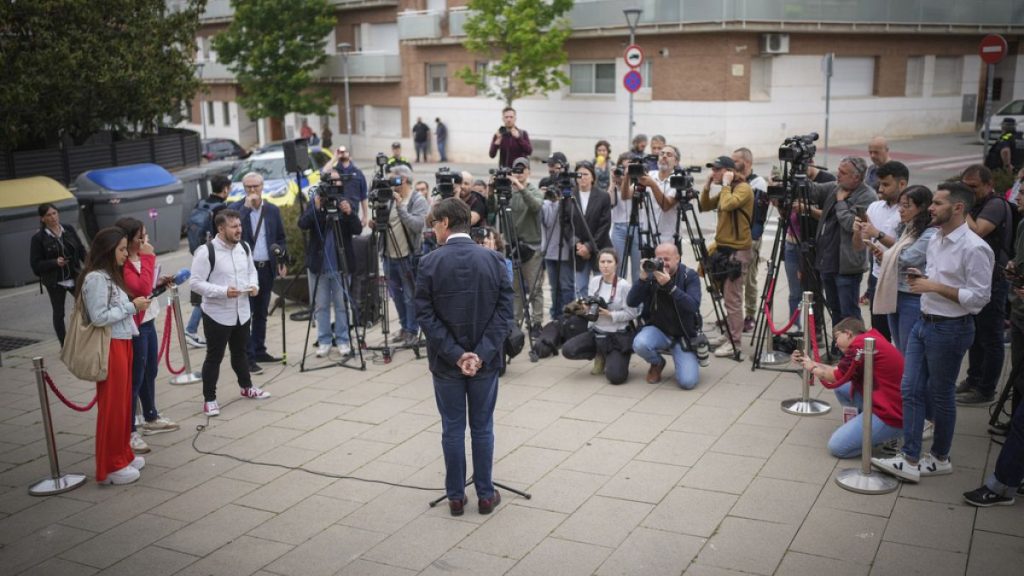Catalonia is hosting a regional election that will have significant implications for both the separatist movement in the region and the leadership of Prime Minister Pedro Sánchez. With more than 5.7 million eligible voters, this election will test the strength of the separatist movement, which has had a stronghold in the regional parliament for over a decade. However, polling and recent national elections have shown a decline in support for secession since former regional president Carlos Puigdemont’s failed breakaway attempt in 2017. Puigdemont, who fled the country, is running in this election from France and hopes to return to Spain once a regional president is chosen by newly elected lawmakers.
Puigdemont is currently facing an investigation by Spain’s top court for alleged terrorism offenses related to his involvement in violent protests in 2019. He is seeking amnesty through Spain’s parliament following Prime Minister Sánchez’s efforts to reduce tensions in Catalonia by pardoning high-profile separatists. The election is also crucial for Sánchez, as a lack of support for his Socialist party could be a significant blow to his leadership. He has campaigned alongside Salvador Illa, the regional Catalan candidate of the Socialists, who won the most votes in the 2021 regional election but was unable to prevent separatist Pere Aragonès from forming a government.
In addition to the challenges faced by Sánchez and the separatist movement, there are also divisions within the separatist movement itself. Puigdemont’s conservative Together party is competing against Aragonès’s Republican Left of Catalonia, adding further complexity to the political landscape. A far-right pro-secession party called Catalan Alliance, which opposes unauthorized immigration and the Spanish state, is also vying for parliamentary representation. With a total of nine parties participating in the election, a coalition government is inevitable, as none are expected to win enough votes to secure the absolute majority of 68 seats in the chamber.
The outcome of the election will not only impact the future of Catalonia’s separatist movement but also have national implications for Spain as a whole. The election will test the popularity of Sánchez’s policies, particularly his efforts to ease tensions in Catalonia through pardoning separatists. The success or failure of the separatist movement in this election could also influence the trajectory of regional and national politics in Spain, as well as the relationship between Catalonia and the central government. As tensions remain high in the region, the election serves as a key moment for the Catalan people to express their desires for the future direction of their government and relationship with Spain.
Ultimately, the election in Catalonia will serve as a crucial indicator of the current political climate in the region and its implications for the rest of Spain. The results will test the strength of the separatist movement, the popularity of Prime Minister Sánchez, and the potential for a coalition government amongst the nine competing parties. With Puigdemont’s presence in the election adding a complex dimension to the political landscape, the outcome will have significant ramifications for the leadership in both Catalonia and Spain as a whole. As voters head to the polls, the future direction of Catalonia’s governance and its relationship with Spain hangs in the balance, making this election a pivotal moment in the region’s history.


